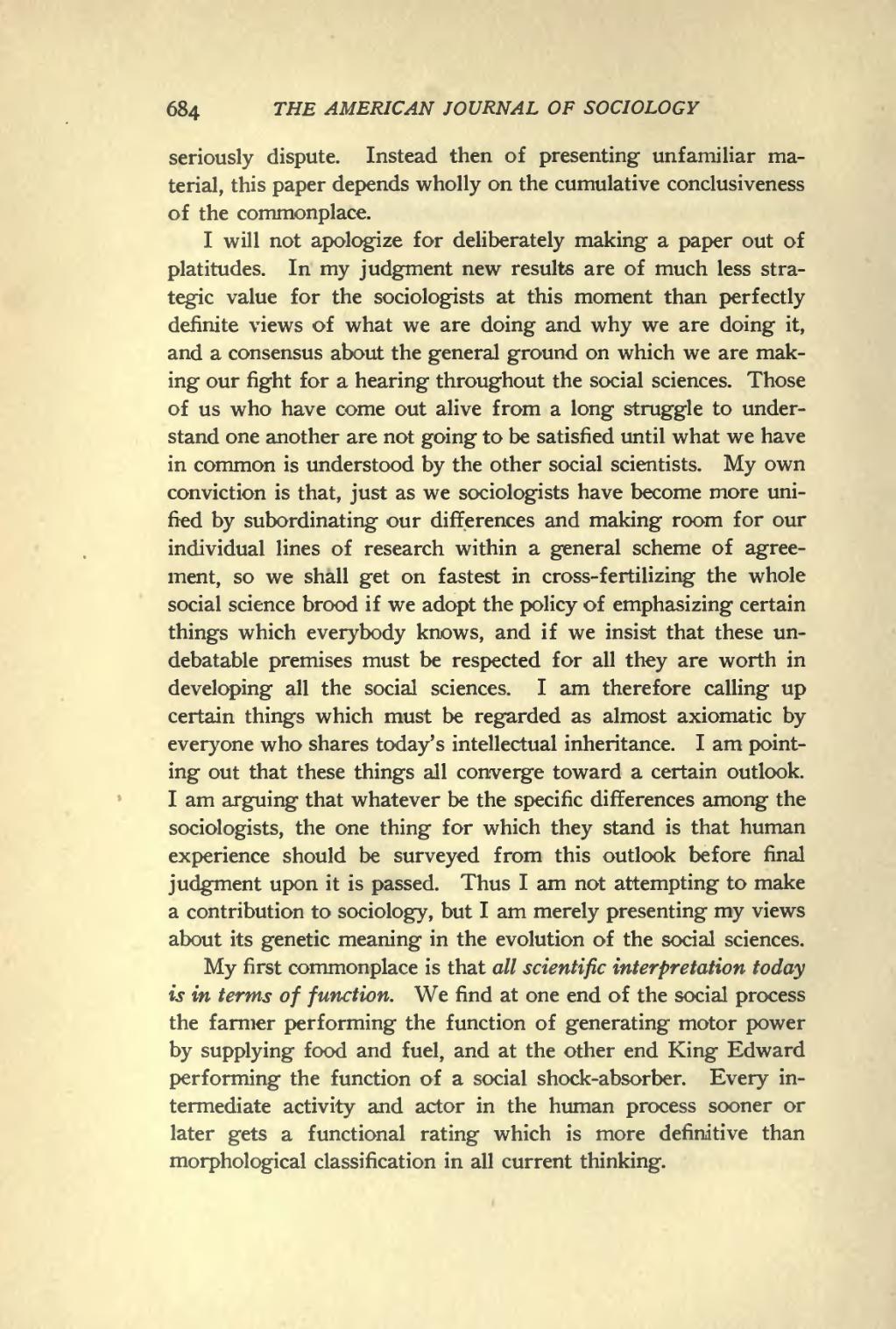684 "^HE AMERICAN JOURNAL OF SOCIOLOGY
seriously dispute. Instead then of presenting unfamiliar ma- terial, this paper depends wholly on the cumulative conclusiveness of the commonplace.
I will not apologize for deliberately making a paper out of platitudes. In my judgment new results are of much less stra- tegic value for the sociologists at this moment than perfectly definite views of what we are doing and why we are doing it, and a consensus about the general ground on which we are mak- ing our fight for a hearing throughout the social sciences. Those of us who have come out alive from a long struggle to under- stand one another are not going to be satisfied until what we have in common is understood by the other social scientists. My own conviction is that, just as we sociologists have become more uni- fied by subordinating our differences and making room for our individual lines of research within a general scheme of agree- ment, so we shall get on fastest in cross-fertilizir^ the whole social science brood if we adopt the policy of emphasizing certain things which everybody knows, and if we insist that these un- debatable premises must be respected for all they are worth in developing all the social sciences. I am therefore calling up certain things which must be regarded as almost axiomatic by everyone who shares today's intellectual inheritance. I am point- ing out that these things all converge toward a certain outlook. I am arguing that whatever be the specific differences among the sociologists, the one thing for which they stand is that human experience should be surveyed from this outlook before final judgment upon it is passed. Thus I am not attempting to make a contribution to sociology, but I am merely presenting my views about its genetic meaning in the evolution of the social sciences.
My first commonplace is that all scientific interpretation today is in terms of function. We find at one end of the social process the farmer performing the function of generating motor power by supplying food and fuel, and at the other end King Edward performing the function of a social shock-absorber. Every in- termediate activity and actor in the human process sooner or later gets a functional rating which is more definitive than morphological classification in all current thinking.
